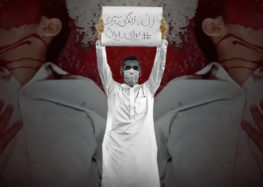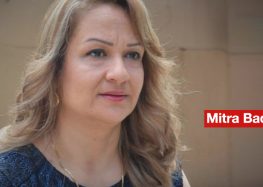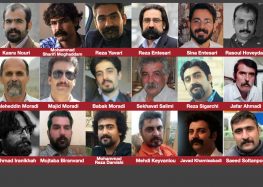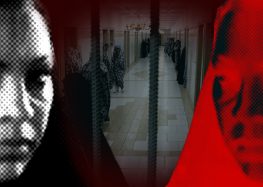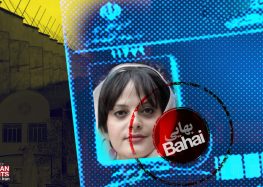Iranian Sunni Cleric Faces Travel Restrictions: “It All Comes Down to Intolerance”
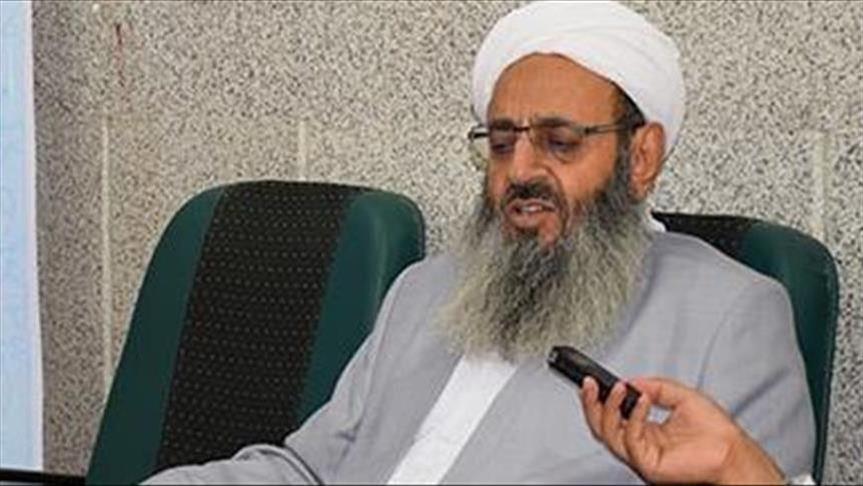
Iranian Officials have imposed travel restrictions on one of the country’s highest-ranking Sunni clerics, Molavi Abdolhamid Ismaeelzahi.
Regardless of how much he attempts to cooperate with Iran’s Muslim Shia government, the country’s highest-ranking Muslim Sunni cleric, Molavi Abdolhamid Ismaeelzahi, continues to be subjected to travel restrictions.
“We know that if we don’t ask for permission before we travel, the authorities will create problems for us,” said Abdolhamid, the Friday prayer leader of Zahedan’s Sunni community in Sistan and Baluchistan Province, in an interview with the Center for Human Rights in Iran (CHRI) on January 24, 2018.
He continued: “We understand the situation and the pressures that exist. So we have decided to coordinate our plans with the authorities. We wanted to go to Mashhad but they didn’t allow it. We said thousands of people go to Mashhad every day. They said those people are different because if I go to Mashhad, the people will come to see me. Then we wanted to go to Kerman and we talked about it with the authorities but they didn’t give us permission.”
“I have my passport but I have been instructed to inform the authorities before traveling abroad,” added Abdolhamid. “One time they allowed me to attend a conference. Since then I have informed them of several other conferences but they have not approved my requests.”
In addition to leading Friday prayers in Zahedan, the well-known Sunni cleric heads the council of Sunni religious schools in Sistan and Baluchestan Province and is a member of the International Union of Muslim Scholars. A loyal supporter of the Islamic Republic, Abdolhamid is also an outspoken defender of the constitutionally guaranteed rights of Sunni Muslims in Iran.
Despite accounting for an estimated five to 10 percent of Iran’s population, no Sunni has been appointed to a ministerial position in government since the establishment of the Islamic Republic in 1979.
Article 12 of Iran’s Constitution specifies the rights afforded to the officially recognized Sunni branches of Islam: “…Other Islamic schools, including the Hanafi, Shafi’i, Maliki, Hanbali, and Zaydi are to be accorded full respect, and their followers are free to act in accordance with their own jurisprudence in performing their religious rites. These schools enjoy official status in matters pertaining to religious education, affairs of personal status (marriage, divorce, inheritance, and wills) and related litigation in courts of law.”
According to Article 26: “The formation of parties, societies, political or professional associations, as well as religious societies, whether Islamic or pertaining to one of the recognized religious minorities, is permitted provided they do not violate the principles of independence, freedom, national unity, the criteria of Islam, or the basis of the Islamic republic. No one may be prevented from participating in the aforementioned groups, or be compelled to participate in them.”
Abdolhamid told CHRI that discrimination against Sunnis in Iran continues to pervade his community’s everyday lives.
“I think its just intolerance,” he said. “We are citizens of this country and we have the right to exercise our rights. Iran is our homeland but they won’t let us go to cities in our own country. I get invited by people in Sunni regions and they expect me to visit them but there are problems.”
He added: “We are not the opposition. We have criticism, criticism along with solutions. We have always taken part in elections and actively participated and cooperated in other areas. We have always stressed unity between Shias and Sunnis. We strongly oppose tension and discord.”
Re-elected on May 19, 2017, President Hassan Rouhani did not appoint Sunnis or women to ministerial positions in his government despite calls from clerics, activists and scholars for him to form a more inclusive cabinet.
“Our province is turbulent because of the long border [with Pakistan and Afghanistan] and the authorities acknowledge that peace is maintained by the efforts made by the Sunni religious leaders,” said Abdolhamid. “So you would think the authorities would not have a problem with us, but they do. It all comes down to intolerance.”
In September 2017, Supreme Leader Ali Khamenei forbade “discrimination and inequality” against Iranian minorities but Sunni rights activists have seen no improvements.
“We expected the government to embrace the supreme leader’s decree,” Abdolhamid told CHRI. “But we have not seen any changes so far. We have not lost hope. We hope to see impactful signs in the coming months.”
*This article was modified on January 29, 2018, to reflect that Iran’s Sunni population is estimated at five to 10 percent.

